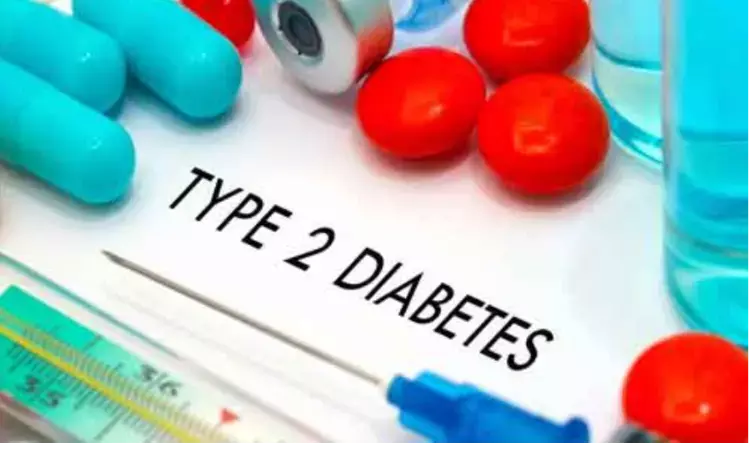- Home
- Medical news & Guidelines
- Anesthesiology
- Cardiology and CTVS
- Critical Care
- Dentistry
- Dermatology
- Diabetes and Endocrinology
- ENT
- Gastroenterology
- Medicine
- Nephrology
- Neurology
- Obstretics-Gynaecology
- Oncology
- Ophthalmology
- Orthopaedics
- Pediatrics-Neonatology
- Psychiatry
- Pulmonology
- Radiology
- Surgery
- Urology
- Laboratory Medicine
- Diet
- Nursing
- Paramedical
- Physiotherapy
- Health news
- Fact Check
- Bone Health Fact Check
- Brain Health Fact Check
- Cancer Related Fact Check
- Child Care Fact Check
- Dental and oral health fact check
- Diabetes and metabolic health fact check
- Diet and Nutrition Fact Check
- Eye and ENT Care Fact Check
- Fitness fact check
- Gut health fact check
- Heart health fact check
- Kidney health fact check
- Medical education fact check
- Men's health fact check
- Respiratory fact check
- Skin and hair care fact check
- Vaccine and Immunization fact check
- Women's health fact check
- AYUSH
- State News
- Andaman and Nicobar Islands
- Andhra Pradesh
- Arunachal Pradesh
- Assam
- Bihar
- Chandigarh
- Chattisgarh
- Dadra and Nagar Haveli
- Daman and Diu
- Delhi
- Goa
- Gujarat
- Haryana
- Himachal Pradesh
- Jammu & Kashmir
- Jharkhand
- Karnataka
- Kerala
- Ladakh
- Lakshadweep
- Madhya Pradesh
- Maharashtra
- Manipur
- Meghalaya
- Mizoram
- Nagaland
- Odisha
- Puducherry
- Punjab
- Rajasthan
- Sikkim
- Tamil Nadu
- Telangana
- Tripura
- Uttar Pradesh
- Uttrakhand
- West Bengal
- Medical Education
- Industry
Once-Weekly Insulin as effective as once-daily insulin in type 2 Diabetes: NEJM

Researchers have found that Once-weekly treatment with insulin icodec had blood sugar lowering efficacy and a safety profile similar to those of once-daily insulin glargine U100 in patients with type 2 diabetes, according to a study published in the New England Journal of Medicine.
It is quite often put to thought that decreased frequency of basal insulin injections might facilitate treatment acceptance and adherence among patients with type 2 diabetes. Insulin icodec is a basal insulin analog designed for once-weekly administration that is in development for the treatment of diabetes.
Hence, the authors conducted a 26-week, randomized, double-blind, double-dummy, phase 2 trial on a total of 247 participants who all were randomly assigned (1:1) to receive either icodec or glargine. The study aimed to investigate the efficacy and safety of once-weekly insulin icodec as compared with once-daily insulin glargine U100 in patients who had not previously received long-term insulin treatment and whose type 2 diabetes was inadequately controlled while taking metformin with or without a dipeptidyl peptidase 4 inhibitor.
The primary endpoint was the change in glycated hemoglobin level from baseline to week 26. Safety endpoints, including episodes of hypoglycemia and insulin-related adverse events, were also evaluated.
The authors observed the following results from the study-
- a. Baseline characteristics were similar in the two groups; the mean baseline glycated hemoglobin level was 8.09% in the icodec group and 7.96% in the glargine group.
- b.The estimated mean change from baseline in the glycated hemoglobin level was −1.33 percentage points in the icodec group and −1.15 percentage points in the glargine group, to estimated means of 6.69% and 6.87%, respectively, at week 26.
- c.The estimated between-group difference in the change from baseline was −0.18 percentage points.
- d.The observed rates of hypoglycemia with the severity of level 2 or level 3 was low.
The authors noted that there was no between-group difference in insulin-related key adverse events, and rates of hypersensitivity and injection-site reactions were low. Also, most of the adverse events were mild, and no serious events were deemed to be related to the trial medications, they added.
Therefore, they concluded that "once-weekly treatment with insulin icodec had glucose-lowering efficacy and a safety profile similar to those of once-daily insulin glargine U100 in patients with type 2 diabetes."
Dr. Nandita Mohan is a practicing pediatric dentist with more than 5 years of clinical work experience. Along with this, she is equally interested in keeping herself up to date about the latest developments in the field of medicine and dentistry which is the driving force for her to be in association with Medical Dialogues. She also has her name attached with many publications; both national and international. She has pursued her BDS from Rajiv Gandhi University of Health Sciences, Bangalore and later went to enter her dream specialty (MDS) in the Department of Pedodontics and Preventive Dentistry from Pt. B.D. Sharma University of Health Sciences. Through all the years of experience, her core interest in learning something new has never stopped. She can be contacted at editorial@medicaldialogues.in. Contact no. 011-43720751
Dr Kamal Kant Kohli-MBBS, DTCD- a chest specialist with more than 30 years of practice and a flair for writing clinical articles, Dr Kamal Kant Kohli joined Medical Dialogues as a Chief Editor of Medical News. Besides writing articles, as an editor, he proofreads and verifies all the medical content published on Medical Dialogues including those coming from journals, studies,medical conferences,guidelines etc. Email: drkohli@medicaldialogues.in. Contact no. 011-43720751


